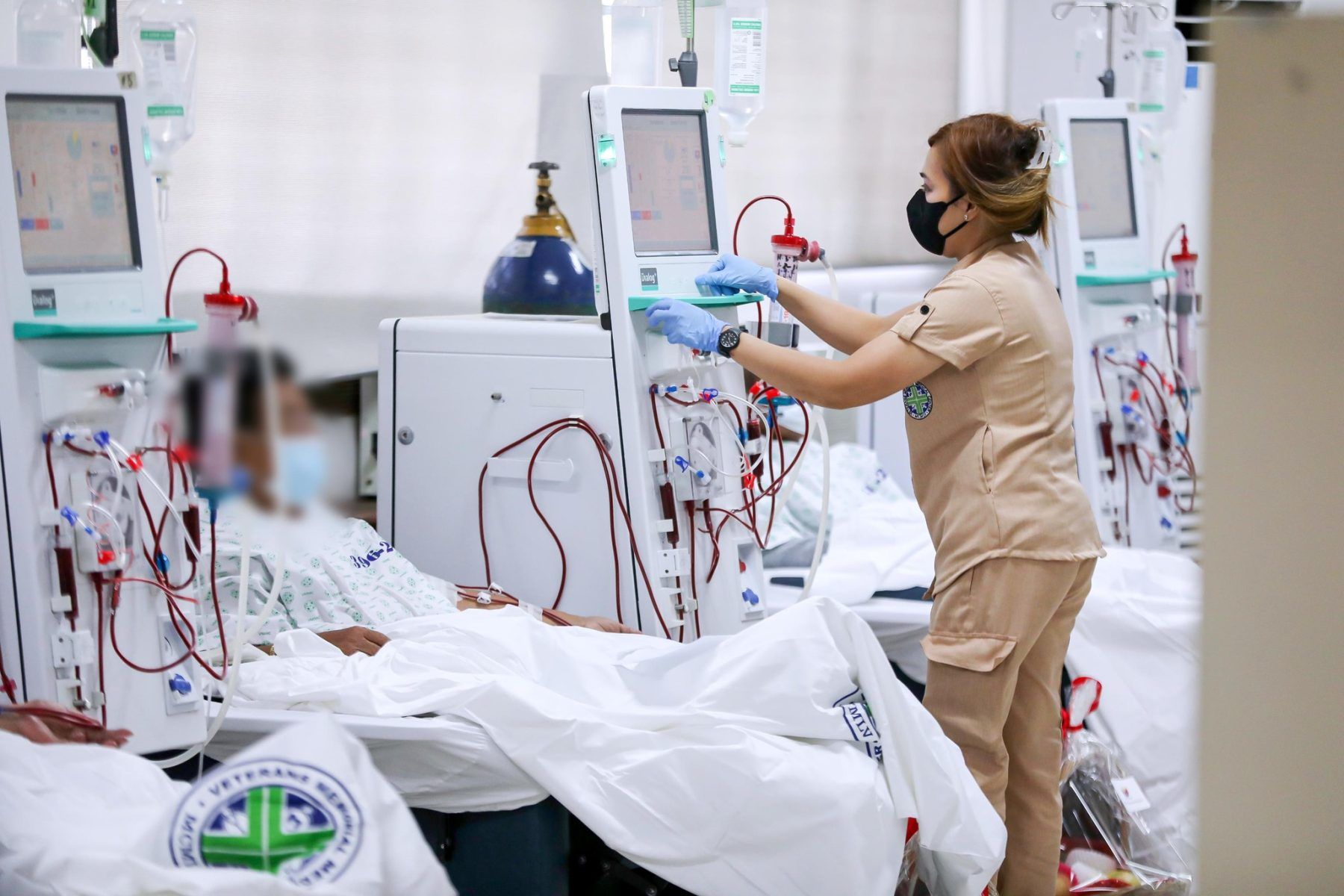It should have been a life-saver. But for many dialysis patients who are now living on borrowed time, the Philippine Health Insurance Corporation’s (PhilHealth) decision to raise its hemodialysis benefit packages last June might as well have been a sentence of death.
“Ang nangyari, sa halip na wala na dapat kaming bayaran ay mas tumaas pa ang binabayaran namin para sa dialysis,” Alex, a senior citizen from San Pedro City, Laguna who regularly undergoes dialysis, told OpinYon Laguna.
“Isipin mo, imbes na makatulong sa aming mga senior citizen ang desisyon ng PhilHealth, lalo pa kaming pinahirapan lalo na’t alam nating may mga isyu ang PhilHealth sa pagbabayad ng mga benefits sa mga healthcare providers,” he added.
Huge shock
Alex, 66 years old, had Stage 5 chronic kidney disease and currently relies on dialysis sessions while waiting for a viable kidney transplant.
“Dalawang beses ako ngayong nagpapa-dialysis, at minsan inaabot ako ng apat hanggang anim na oras kada session ng hemodialysis – four hours para sa mismong dialysis, tapos kung may backlog pa sa pasyente o kailangang linisin ang machine, aabutin pa ako ng dalawang oras bago ako maisalang sa dialysis,” he recounted to OpinYon Laguna. “So isipin mo, halos tatlong araw na kada linggo ang ginugugol ko para lang magpalinis ng aking katawan.”
Fortunately, he said, he had to pay very little for his hemodialysis sessions since these are covered by a P2,600-per-session hemodialysis package by PhilHealth.
But that changed when PhilHealth, last June, decided to hike the benefit package rate for hemodialysis to P4,000 from P2,600 per session.
PhilHealth officials claim the move will “bring each Filipino closer to accessing the highest quality healthcare at the lowest cost.”
For Alex, though, what happened was the opposite.
“From the usual P700 hanggang P1,000 na usually ay binabayaran ko dati, biglang naging P3,800 na ang binabayaran ko kada hemodialysis session,” he said as he showed receipts to OpinYon Laguna reflecting the drastic increase in his dialysis bills.
Reluctant?
What happened to Alex and other dialysis patients is a stark reflection of the misgivings already aired by the healthcare sector to PhilHealth’s decision to hike its hemodialysis package.
Since a typical dialysis session costs P5,200 to P6,000, several doctors and other support groups have expressed their worries that PhilHealth's order to raise its hemodialysis benefits package could lead to the closure of many dialysis centers.
“Inaalala po namin na baka dumating ang time na hindi na nila [dialysis centers] kayanin ang gastos. Mai-provide nga nila pero kung hindi naman po kikita yung dialysis center, magsasara po sila at mawawalan kami ng mga masasalangan,” Reynaldo Abacan Jr., founder and president of the Dialysis PH Support Group Inc., was quoted as saying by media.
Death sentence?
Given PhilHealth’s troubled history of unsettled claims to hospitals, doctors and other healthcare providers, the most probable conclusion is that most healthcare providers are now declining to honor the increased packages, according to Ray Junia, convenor of the Institute for Consumer Research and Empowerment (ICORE).
The fact that P90 billions of PhilHealth's funds were ordered to be transferred by the Department of Finance (DOF) to the national treasury – reportedly to fund Maharlika Investment Corporation, the state-run sovereign fund – has not instilled confidence between PhilHealth and the healthcare sector, Junia added.
“So ang nangyayari dito, dahil sa nagkalamat na relasyon ng PhilHealth at mga dialysis center – na mas pinatindi pa ng desisyon ng DOF na ilipat ang pera ng PhilHealth sa national treasury – hindi tayo nagulat na may mga dialysis center na hindi na nagho-honor ng PhilHealth benefits sa mga pasyente nila,” he explained.
And it would be patients like Alex who are now living on borrowed time (as dialysis sessions are usually treated as lifetime yet palliative treatments for patients with kidney diseases, diabetes and other diseases affecting the kidney) who will bear the brunt of this misguided decision by PhilHealth, Junia noted.
“Mapipilitan ang mga dialysis patient, lalo na yung mga hikahos sa buhay, na either bawasan ang mga dialysis sessions nila o di kaya e tumigil nang tuluyan. Para mo na rin silang sinentensyahan ng kamatayan dahil alam naman natin na dialysis na lang ang nagpapabuhay sa kanila, short of a kidney transplant,” he explained.
#WeTakeAStand #OpinYon #OpinYonNews #PhilHealth #DOF #PHHealthCare
